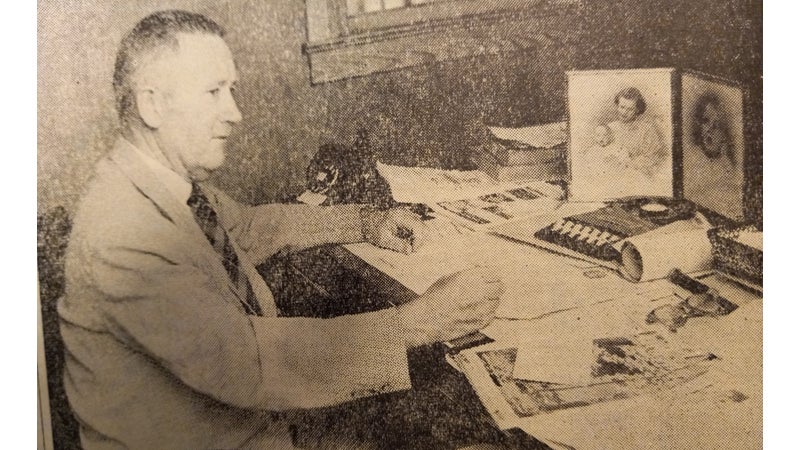Regionalism is a two-way street
Published 8:57 am Saturday, March 5, 2011
Had Navy Adm. J.C. Harvey, a man of honor, looked Franklin in the eye six months ago and said that use of the city’s airport for pilot training was essential to the defense of our nation, Navy planes would be buzzing the skies of Franklin today as 99 percent of the citizenry looked up and saluted.
There would have been no town hall meetings, no online Q&As, no memoranda of understanding and no rancorous debates among City Council members. No “environmental assessment” would have been conducted, because the president would have declared a national emergency and bypassed the bureaucracy.
The admiral didn’t tell Franklin that, of course, because it’s not the case. The Navy’s proposal was not and is not mission-critical. Despite all of the sincere, emotional pleas from Navy supporters for Franklin to do its patriotic duty, an unemotional analysis shows that the Navy’s ongoing pursuit of an auxiliary landing field for turboprop planes is largely about the economy of metropolitan Hampton Roads.
Harvey said as much in a recent speech at the Navy League’s annual dinner.
The Franklin City Council’s rejection of the Navy partnership is “emblematic of the larger situation we have in Hampton Roads,” he said. “In order to sustain our Navy properly in this region — where we homeport, train and operate our Naval forces — we all need to take a regional approach to addressing these big issues. Our 83 ships, 35 aircraft squadrons, 86,000 active-duty sailors and 98,000 family members homeported in Hampton Roads results in over $14.8 billion in economic benefit to this region.
“But there is a cost that comes with this extraordinary economic benefit. Training is a critical part of what we do here — it isn’t a piece that we can simply do without — and I must do what it takes to make sure our sailors have the space and resources to do it.”
Patriotism has more emotional appeal, but in this case, regionalism is the much more interesting and applicable debate. More to the point, what is Franklin’s and Western Tidewater’s obligation to the economies of Virginia Beach, Chesapeake and Norfolk?
The question this columnist has been asked more than any other during the Navy debate is this: “Why is Jim doing this?”
The reference is to Franklin Mayor Jim Councill’s dogged persistence in pushing the Navy project, even as opposition mounted among his council colleagues and the citizenry at large. After the council voted emphatically on Feb. 14 to end pursuit of the project, he tried again.
Theories abound about the mayor’s motives. Most of those theories are a disservice to a man who has served his city with integrity, passion and sincerity for a couple of decades.
Since many of you have asked, the belief here is that Jim Councill is one who believes deeply in regionalism, Franklin’s obligations to Greater Hampton Roads and his own image among the region’s leadership. He didn’t publicly push that angle, in my view, because it doesn’t play well politically with local citizens, who see much more give than take in Western Tidewater’s relationship with Hampton Roads.
For decades, Franklin and Southampton County have faithfully paid their dues to Hampton Roads organizations, at times to our fiscal disadvantage (read: SPSA). Six years ago, we staked our economic future almost entirely on regional cooperation, joining the Hampton Roads economic-development clique in hopes that leaders there would steer jobs our way. We accepted a bypass highway at the expense of our downtown commercial districts. We built public housing for citizens the big cities no longer wanted.
If the political leadership of Virginia Beach and Norfolk is serious about Western Tidewater becoming a partner in a viable regional economy, at some point our rural area has to become more than a fix for metropolitan problems.
It was fitting that, a day before the Franklin City Council reaffirmed its opposition to Navy training at the airport, the Virginia General Assembly refused to give Virginia Beach money to cure the residential encroachment that limits Naval Air Station Oceana’s capacity for pilot training. A week later, I haven’t heard anyone call the Virginia General Assembly unpatriotic, even as the Franklin City Council is called the same.
Lawmakers recognize that Virginia Beach has not done enough to help itself. Over the years, the greed of unrestrained residential development has outweighed the need to protect Oceana and the thousands of jobs it provides for that city and the region.
Meantime, Franklin, in exchange for fire trucks, Navy-specific airport improvements and a breakeven contract, is expected to come to the rescue of Hampton Roads’ economy.
More than a year ago, I attended a meeting of regional leaders about the potential exportation of another Hampton Roads problem to Western Tidewater. Our delegation’s suggestion to the Hampton Roads liaison in attendance was to ask the leaders of a particular city to the east for a revenue-sharing agreement with Western Tidewater localities. If we cured that city’s problem, the least it could do is share some of the economic largesse derived from the solution.
Only fair, right?
Sixteen months later, no response.
STEVE STEWART is publisher of The Tidewater News. His e-mail address is steve.stewart@tidewaternews.com.


